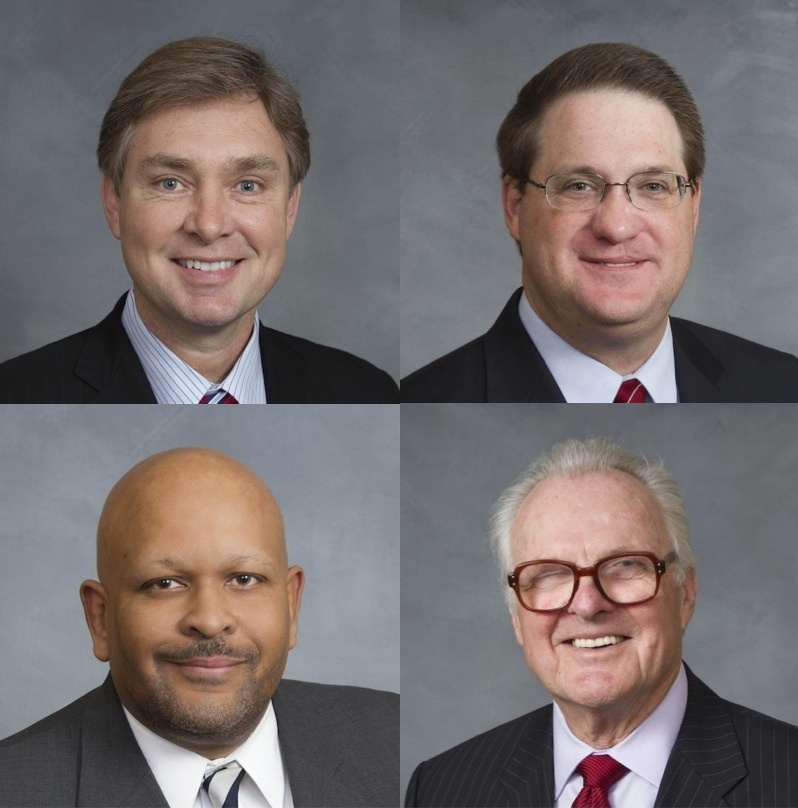Are four NC lawmakers really committing voter fraud?

(CORRECTION: An earlier version of this story incorrectly reported that N.C. State Board of Elections Director Kim Strach is a Republican. Strach is unaffiliated. Facing South regrets the error, which has been corrected in the text below.)
Four North Carolina state lawmakers could be targets of criminal investigations for voter fraud based on controversial standards embraced by some of their own colleagues.
Today Democracy North Carolina, a voting rights watchdog group, released findings that show someone with exactly the same first name, last name, and date of birth as each of the lawmakers is registered to vote in another state. The registrants' middle names and middle initials also correspond.
Earlier this year, the State Board of Elections released a report that identified 35,750 North Carolina voters whose first name, last name and date of birth matched registered voters in other states. Some state lawmakers and conservative activists claimed that was proof voter fraud was occurring -- a claim that voting rights advocates challenged.
"These legislators are innocent" of fraud, Democracy North Carolina Executive Director Bob Hall said at a press conference today outside the Board of Elections offices where he announced his group's findings. "This is the problem with using mass sets of data and drawing conclusions about voter fraud."
Democracy North Carolina looked at the registrations of 150 North Carolina lawmakers for whom it had birth dates and compared them to registrants in eight states where records are easily accessed. The group discovered that four lawmakers -- two Republicans and two Democrats -- appear to be registered to vote in other states:
* Rep. Duane Hall, a Wake County Democrat, is registered to vote in North Carolina as Duane R. Hall II. Someone named Duane Raymond Hall with the same birth date is also registered as a Democrat in Palm Beach County, FL. Rep. Hall worked as a public defender in Florida before moving to North Carolina.
* Rep. Charles Jeter, a Mecklenburg County Republican, is registered to vote in North Carolina as Charles Roper Jeter Jr. A Charles R. Jeter Jr. with the same birth date is also registered to vote in Greenville County, SC. Rep. Jeter was born in South Carolina and received his degree in business economics there.
* Rep. Rodney Moore, a Mecklenburg County Democrat, is registered to vote in North Carolina as Rodney Wayne Moore. A Rodney W. Moore with the same birth date is also a registered Democrat in Brooklyn, NY.
* Sen. Ronald Rabin, a Harnett County Republican, is registered to vote in North Carolina as Ronald Joseph Rabin. A Ronald J. Rabin with the same birthdate is also registered to vote in Hancock County, MS. Rep. Rabin attended the University of Southern Mississippi and lived in the Magnolia State for a time after retiring from the Army.
Hall said he's "pretty sure" it is the same person registered in both states but noted that none of them had voted outside North Carolina in years. He pointed out that people often move and register to vote in their new state without canceling their old registration. Many people assume the records will be updated automatically but that does not always happen.
The North Carolina State Board of Elections identified the alleged 35,750 double-registered voters through the controversial Interstate Crosscheck program run by Kansas Secretary of State Kris Kobach, a long-time Republican operative who is the architect of a plan to restrict voting in his state. North Carolina joined the program just as other states were quitting over concerns about the reliability of its data.
But that didn't stop some North Carolina lawmakers and conservative media from making far-reaching claims about the Crosscheck findings. At an April hearing of the Elections Oversight Committee, for example, Rep. Tim Moore (R-Cleveland) said the state's report was "proof positive that voter fraud has in fact occurred." Facing South contacted Rep. Moore's office for comment about the Democracy North Carolina findings but he was not available for an immediate response.
Not everyone thought the Interstate Crosscheck findings were definitive proof of fraud, however. State Board of Elections Director Kim Strach, an independent, urged a more cautious approach and said her office would examine each individual case to determine whether any fraud had in fact occurred.
Democracy North Carolina's Hall doesn't doubt there are actual cases of voter fraud, but he said few of those would be solved by the state's photo ID requirement that takes effect in 2016. He's worried there are far more citizens being disenfranchised because of poor poll worker training and changes to state law that make voting more difficult.
Hall noted that he himself could face voter fraud accusations, as someone with the same first and last names and date of birth is registered in Ohio. With the legislature set to convene this week for its biennial short session, Hall said he's concerned the hysteria over double registrations could fuel a movement to add new voting restrictions. He hopes his group's findings help make the case against jumping to conclusions.
"Before legislators get too carried away with their rhetoric," he said, "maybe it would help if they know they could be indicting themselves."
Tags
Sue Sturgis
Sue is the former editorial director of Facing South and the Institute for Southern Studies.
